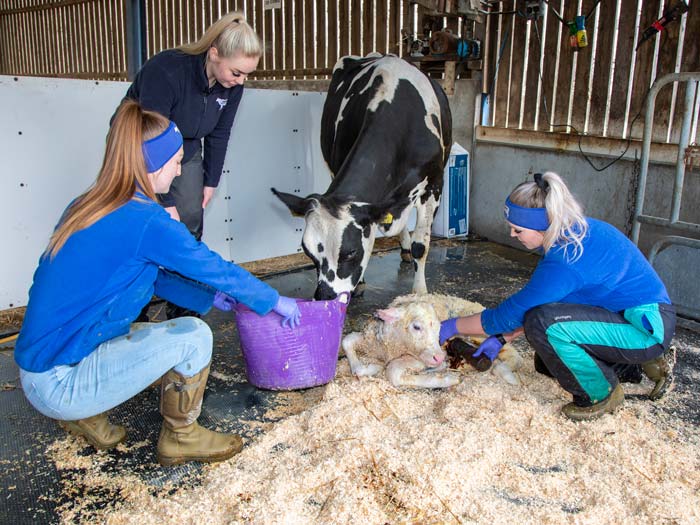What is an apprenticeship?
What is an apprenticeship?
What is an apprenticeship?

An apprenticeship allows you to be employed and receive pay, while you work towards a nationally recognised qualification.
You'll usually spend one day a week at a college, university or a training centre on an approved study programme. The rest of the week is spent in work.
Apprenticeships are not only for those who've just left school. Many are also open to those who've been working for years or are starting a new career.
As an apprentice
Apprenticeships are an exciting option - you get hands-on training and the chance to put your skills into practice.
Apprenticeships are available at multiple levels, from school-leavers, to people upskilling in their careers and complete career changes. There are a few apprenticeships focused on farming and growing as well as apprenticeships in other areas.
What you'll earn
What you earn will depend on the industry, location and type of apprenticeship you choose.
If you're aged between 16 and 18 or in the first year of your apprenticeship, you’re entitled to the apprentice rate.
If you're 19 or over and have completed the first year of your apprenticeship, you’re entitled to the National Minimum Wage.
This is the minimum you’ll earn - many employers pay a lot more and offer their apprentices a competitive salary.
Apprenticeship levels are set and equivalent to:
- 2 (Intermediate): GCSEs
- 3 (Advanced): A levels
- 4 (Higher): foundation degree
- 5 (Higher): foundation degree/first year of bachelor’s degree
- 6 (Degree): bachelor’s degree
- 7 (Degree): master’s degree
It's important to know the level is based on the job role and duties it's attached to.
What will it cost me?
Apprenticeships are funded from contributions made by the government and your employer. This means you'll not have any student loans or tuition fees.
You'll just need to cover the cost of your day-to-day expenses, such as lunch and travel.
If you're aged between 16 and 24 and looking to change career, you'll receive a £1,000 bursary payment to support you in the first year of your apprenticeship.
What is an end point assessment?
Once your apprenticeship’s practical training is completed, an independent assessment will take place. This is called an end-point assessment, or EPA for short.
The EPA is your opportunity to show you are genuinely competent in your occupation by allowing you to showcase what you've learnt throughout your apprenticeship. Each apprenticeship programme has a slightly different assessment approach, but what they all have in common is they’ll assess the knowledge, skills and behaviours you've developed during your apprenticeship.
If you are interested in becoming an apprentice, information can be found on the UK government website.
Visit Apprenticeships.gov.uk for more information, including a helpful guide to becoming an apprentice.